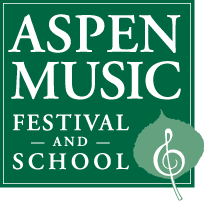« Definitions & responses | Main | The view from the heartland »
July 24, 2006
Could It Be? Yes It Could...
by Joshua KosmanRobbie Robertson: We wanted it to be more than just a concert. We wanted it to be a celebration.
Martin Scorsese: Celebration of a beginning or an end?
Robertson: Beginning of the beginning of the end of the beginning.
The end of classical music, promised for so long and in so many ways, is taking its sweet time in coming. The full-time Cassandras -- Norman Lebrecht, Greg Sandow and others -- wag their fingers and warn us, "Just you wait, this is all going to come crashing down." And maybe they're right. But the prediction is always vague enough to be unfalsifiable. Each year that classical music manages to survive is read as merely a small delay of the inevitable; there are no data, no eventualities, that could actually refute the proposition that some day, some way, something bad is comin'.
Which is not to say that there isn't something winding down around us. There is -- but it's something we should be perfectly content to see the last of. It's the sense of entitlement that has attended classical music for so long, the unthinking assumption that this right here is musical culture and all those other sounds are -- well, something else. You can see how that attitude isn't going to get you very far in a pluralistic, multicultural democracy, and some of the resulting setbacks are frankly a little overdue.
But as classical music's inflated sense of self gets battered by reality, it seems to me that something much healthier has begun to emerge: An awareness that in the cultural marketplace, you have to pay your way. You have to bring something to the table that people currently want, or can be persuaded to want; you don't get grandfathered in.
Fortunately, classical music is something people want, in one form or another; that's why I feel so optimistic about its future. And I'd go further in my optimism and say that the troubles besetting the field -- which are real, no doubt about it -- can only have the effect of forcing the purveyors of classical music to state their case more clearly and more persuasively. The result may possibly be fewer performances -- not an inherently bad thing, if so -- but it will certainly be a culture whose participants have a clearer sense of the value and importance of what they're doing.
The kind of process I'm describing has already been observed in the area of contemporary composition. Hard-core high modernism was premised on a similar sense of entitlement -- the idea that carrying out the will of history trumped other imperatives, and that fulfilling that goal was the only ticket required. We can see how well that worked out. The decline of doctrinaire modernism has meant a flood of composers eager to beguile, fascinate, seduce and engage their listeners; in other words, the beginning glimmer of a golden age of composition.
I think the same dynamic is about to play out in the larger world of classical music as well, and for the same reasons. It's not the best of times yet, but they're coming.
Posted by jkosman at July 24, 2006 02:09 AM
COMMENTS
Post a comment
Tell A Friend


